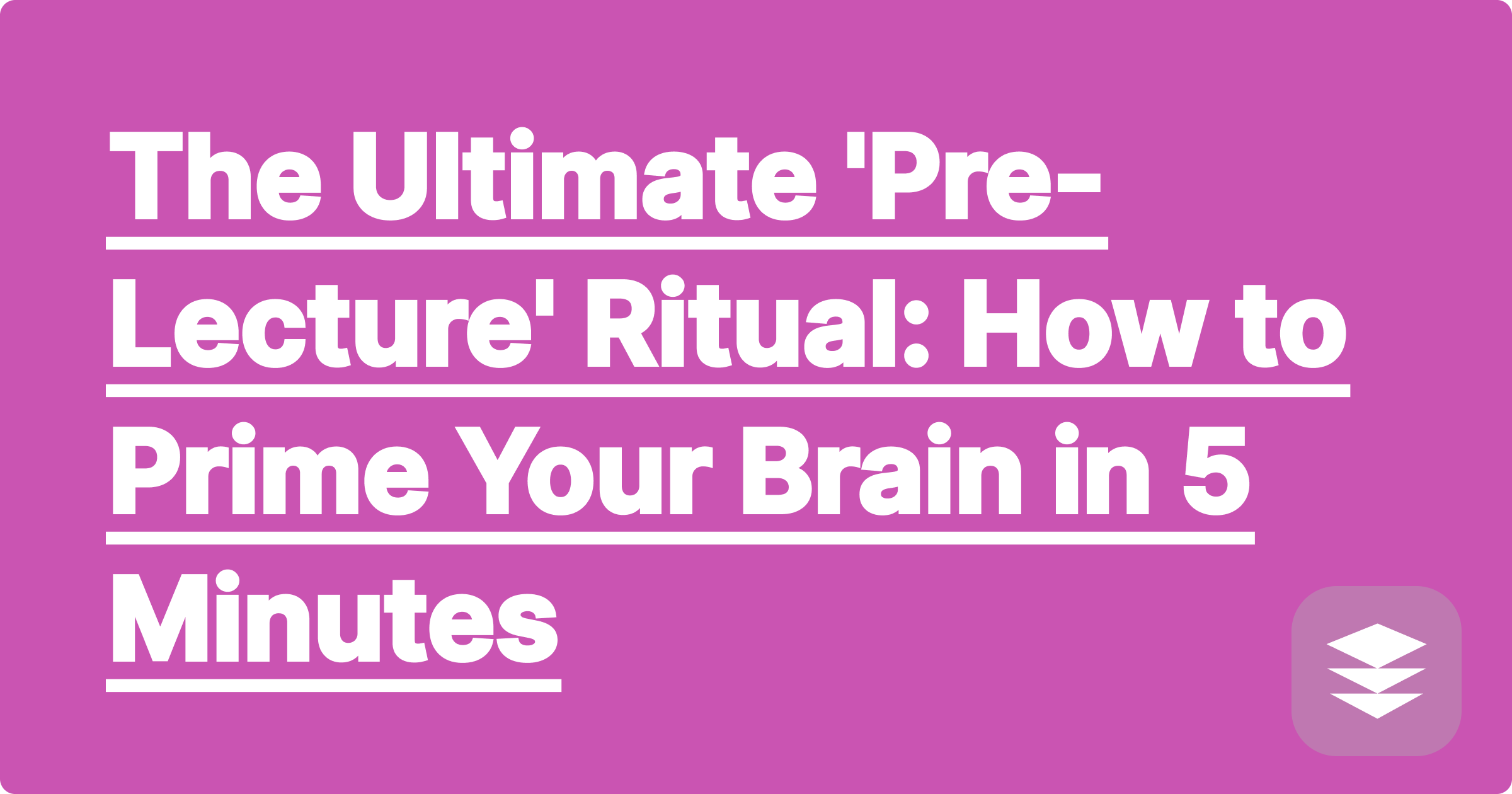
Walk into any university lecture, and you'll see two types of students. The first type is hearing the information for the very first time. They are scrambling to keep up, and their brain is working overtime just to process the new vocabulary and concepts. The second type of student seems to follow along effortlessly. They ask insightful questions because they aren't struggling with the basics. What's their secret? They came prepared. They performed a "pre-lecture" ritual.
The single most effective thing you can do to improve your comprehension in a lecture is to do some form of pre-reading with ai or other tools beforehand. This doesn't mean you need to read the entire 50-page textbook chapter. It's about "priming" your brain. By exposing your mind to the key concepts and vocabulary before the lecture, you create a "mental framework" or a set of "hooks" for the new information to attach to. The lecture then becomes a process of deepening your understanding, not just desperately trying to catch up.
The problem is, who has time for extensive pre-reading? This is where an AI tool like GPAI Cheatsheet becomes your secret weapon for hyper-efficient preparation. This entire ritual takes less than five minutes.
Step 1: Find Today's Topic
Look at your course syllabus. What is the topic of today's lecture? Let's say it's "Chapter 5: Photosynthesis."
Step 2: Upload the Source Material to the AI
Find the PDF for that textbook chapter or the professor's lecture slides (if they post them in advance). Upload the file to GPAI Cheatsheet.
Step 3: The "Priming" Prompt
Give the AI a very specific command: "I'm about to go to a lecture on this topic. Give me a 3-bullet-point summary of the absolute most important concepts, and a list of the 5 most important new vocabulary words I will hear."
The AI's Output (Your "Mental Hooks"):
The AI note taker and summarizer will instantly provide something like:
[Image: A student on their phone, quickly reading a concise, bullet-pointed summary from the GPAI app just before walking into a lecture hall. Alt-text: A student using AI for pre-reading to prepare for a lecture.]
That's it. In under five minutes, you have now primed your brain. When the professor starts talking about "ATP production in the thylakoid membrane," you won't be hearing those words for the first time. You'll have a mental hook to hang that information on. You'll be able to focus on the professor's more nuanced explanations instead of just struggling to grasp the basic terminology.
After the lecture, you can return to your AI cheatsheet and add your own notes from the class, building on the initial framework. And if there was a tough problem on the board, you can snap a photo and use the GPAI Solver to understand its solution. This "prime-learn-review" cycle is a scientifically-backed way to maximize retention.
A: Absolutely. The goal is not to master the topic beforehand. It's simply to create familiarity. Neuroscience shows that this pre-exposure significantly reduces the cognitive load during the actual learning event (the lecture), freeing up your brainpower for deeper processing.
A: Use the textbook chapter listed on the syllabus. The AI can summarize a 50-page chapter into its essential points in just a couple of minutes, giving you the same priming advantage.
This 5-minute AI pre-lecture ritual is one of the highest-leverage study hacks you can adopt. It's a small investment of time that pays massive dividends in comprehension, reduced stress, and ultimately, better grades. Stop walking into your lectures cold. Start walking in prepared.
[Try your first 5-minute pre-lecture ritual today. Use GPAI Cheatsheet to prime your brain for learning. Sign up for 100 free credits.]
How to Use GPAI as Your Personal 'Fact-Checker' Before You Speak Up in Class
The 'Rubber Duck Debugging' Method, with an AI That Actually Talks Back
I Have a Terrible Memory': Using an AI Notetaker as a Prosthetic Memory
The Art of the Nap: How AI Can Help You Study in Short, Intense Bursts
What Your Choice of AI Tool Says About Your Personality
How to Build a 'Career Moat' Using Your AI-Generated Knowledge Base
Surviving a Professor Known for 'Trick Questions' with an AI Test Generator
Is This Concept on the Exam? Using AI to Analyze Past Tests
The Ultimate 'Pre-Lecture' Ritual: How to Prime Your Brain in 5 Minutes
Did I Plagiarize Myself?': Using an AI to Rephrase Your Own Previous Work